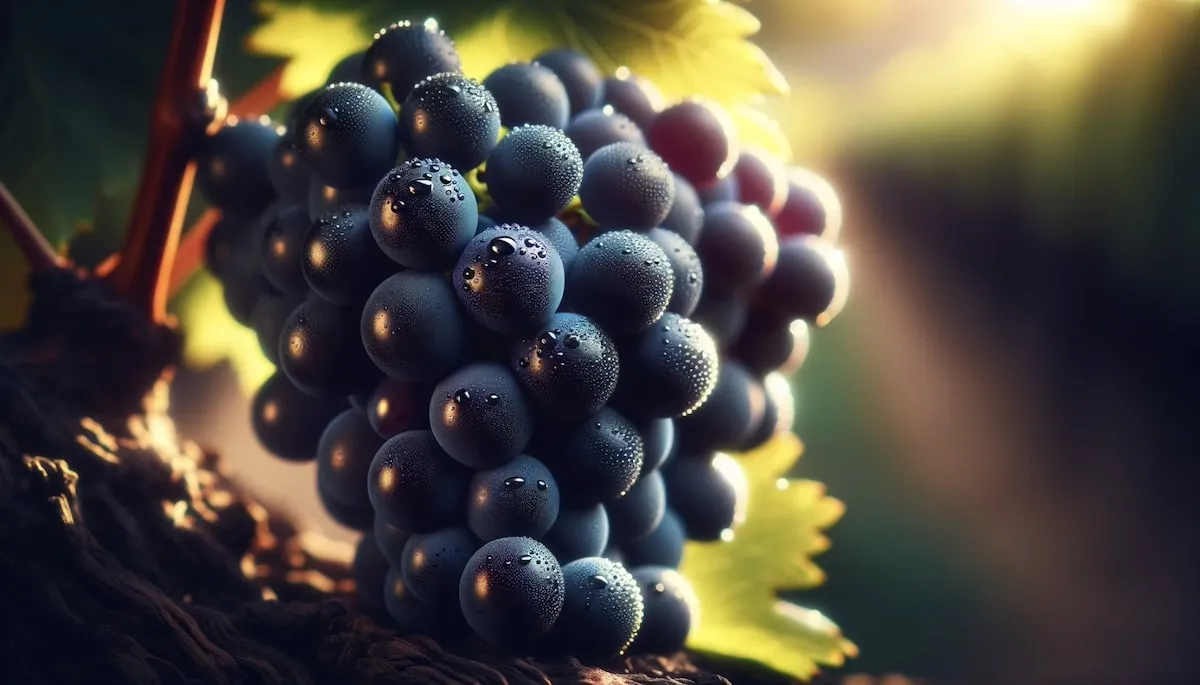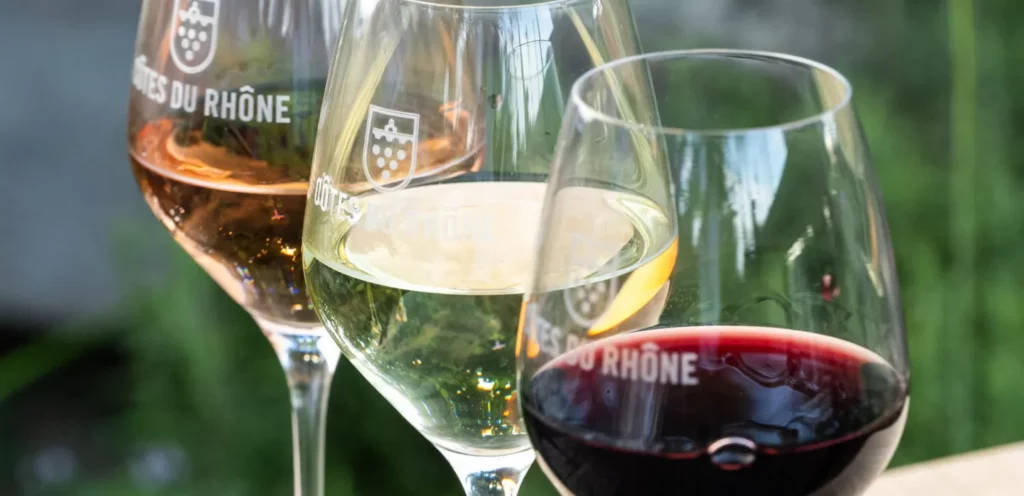Ever felt that slight grip on your tongue when sipping a red wine, that faint dryness that makes your palate tighten, just a little? Don’t worry, nothing’s wrong with your glass. That’s the tannins at work.Far from being a flaw, tannins are what give wine its backbone. They bring structure, depth and ageing potential, shaping its personality over time. How they express themselves depends on the winemaker’s choices and their skill in the cellar.
In our Rhône Valley wines, tannins take centre stage. They come both from the grape varieties we grow and the techniques we use in the cellar.
So where do they come from, and why do they matter so much in tasting? Let’s find out.
Where do tannins come from?
There’s no single answer. Tannins come from the vine itself, the grape variety, the terroir, and the winemaker’s work in the cellar. On the vine, these phenolic compounds are naturally found in the skins, seeds and sometimes even the stems of the grapes. Their presence depends a lot on the grape itself. Syrah, one of Xavier Vignon’s signature grapes, is characterised by its high tannin content, which lends depth and structure. Merlot and Gamay, on the other hand, are softer and rounder, producing wines that are more approachable in their youth.
Then comes the terroir. The soil, the exposure, the climate and the ripeness of the grapes at harvest all shape the texture and quality of a wine’s tannins.
Finally, part of the story unfolds in the cellar. The type of barrels the winemaker chooses can add another layer of tannins and complexity to the wine.
Fun fact
Tannins aren’t just found in grapes! You’ll also find them in tea, certain fruits, spices and even plants: they’re everywhere once you start looking.
Does the winemaking process affect the feeling of tannins?
Tannins are naturally present in grapes, but they don’t magically appear in the wine. They need a little help from the winemaker. Everything happens during maceration, when the juice stays in contact with the skins and seeds. The longer that contact lasts, the more structure and tannic depth the wine develops.
That’s why red wines, which go through a more extended maceration, tend to be much more tannic than rosés or whites, where the contact with the grape solids is minimal. The winemaker’s role is also key. They are the conductor who decides how long the wine has to macerate, what temperature to ferment it at, and which techniques to use, whether that’s punching down, pumping over or pressing. And these choices are essential: each will shape how the tannins feel in the palate. Then comes barrel ageing. Depending on the wood, the barrels can impart their own tannins, either amplifying the structure or softening it for a smoother finish.
Why are tannins important in wine?
Although invisible to the eye, tannins play a significant role in the texture and appreciation of red wines. First of all, they bring colour: wines with more tannins are often deeper in hue. They also bring structure and affect the wine’s ageing potential. When they’re well balanced, tannins allow a wine to evolve beautifully over time, becoming rounder and more supple after a few years in the cellar.
That’s precisely what you’ll find in our Vacqueyras Bio Nature 2023. Made from Grenache and Syrah, it perfectly embodies how tannins shape a young wine. Its ruby colour, with hints of purple, leads to a fresh nose of Morello cherry. The palate is generous and vibrant, carried by firm tannins that stretch into a spicy finish. Fruit and power meet here in perfect harmony, showing just how expressive a young, well-structured wine can be.
Why do tannins dry out the mouth…and how to enhance your tasting experience
Tannins are part of the grape’s DNA, but how they show up in your glass depends on the winemaker’s choices.
Some red wines feel bold and structured, with that slight grip on your tongue that wine lovers instantly recognise. That’s the tannins talking. This feeling of dryness is just chemistry in action. Tannins bind with the proteins in your saliva, creating that tightening effect on the palate. It’s not a flaw at all but rather what gives a wine its shape, strength and potential to age! Still, there are a few tricks to keep them in check and enjoy a smoother tasting experience.
First, pay attention to serving temperature. A wine served just a touch warmer will feel rounder and more generous. Then, think about what’s on your plate. Fat and protein, like in a juicy steak or a good aged cheese, will naturally soften tannins. And of course, patience works wonders. Give a big, structured red a few years in the cellar, and those once-grippy tannins will turn silky.
Take our Côtes du Rhône Vieilles Vignes Bio 2020 organic wine. The tannins are firm but beautifully polished. You can feel them from the first sip, giving the wine shape and presence without muting the red fruit and spice. They actually make the finish longer and more elegant: proof that when handled right, tannins can be pure finesse.
Tannins in the service of flavour
Tannins aren’t just about texture. They give red wines their drive, depth and ability to stand the test of time. When a wine is young, tannins bring body and edge. As it ages, they mellow and reveal layers of complexity that nothing else can replace.
At Xavier Vignon, every grape and every terroir is handled with one goal in mind: balance. The tannins are always there, but never too pronounced. They lift the aromas instead of overpowering them. The result is wines that combine structure and elegance, built to age yet already irresistible in their youth.
So, what’s the best way to understand tannins? Tasting them! Explore our wines and see for yourself how they bring shape, energy and soul to every bottle.
Happy tasting!


